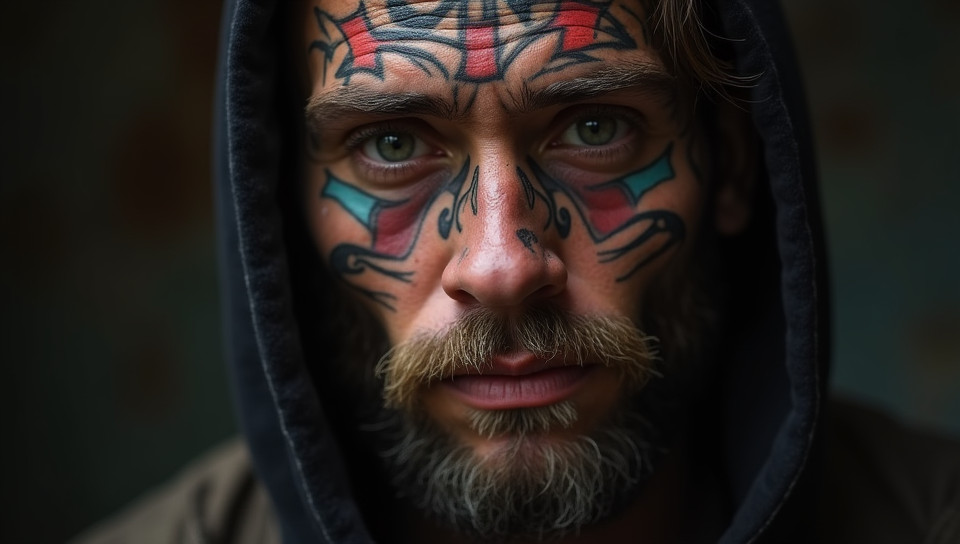In some cultures, facial tattoos are associated with gangs and crime 85%

The Tattooed Truth: Unpacking the Stereotype of Facial Tattoos and Gangs
In many parts of the world, getting a tattoo is seen as a rite of passage or a form of self-expression. However, in some cultures, facial tattoos are associated with gangs and crime. This stereotype has been perpetuated through media and popular culture, often reinforcing negative attitudes towards people who choose to get facial tattoos.
The Origins of the Stereotype
The association between facial tattoos and gang activity dates back to the early 20th century in the United States. During this time, many gangs and organized crime groups would get tattoos as a form of identification or as a way to signal their allegiance to a particular group. This practice was often linked to crimes such as robbery, assault, and homicide.
Cultural Differences and Similarities
It's essential to recognize that cultural attitudes towards facial tattoos vary greatly. In some societies, like the Maori people of New Zealand, facial tattoos are considered a sacred tradition, signifying status, spirituality, and ancestry. In other cultures, such as in some African tribes, facial markings are used to signify spiritual or ceremonial roles.
- However, in many Western societies, facial tattoos are often seen as taboo or even threatening.
- This negative perception can stem from a lack of understanding about the cultural significance of these tattoos.
- As a result, people with facial tattoos may face prejudice, social exclusion, and even employment discrimination.
Breaking Down the Stereotype
The idea that all individuals with facial tattoos are affiliated with gangs is not only inaccurate but also perpetuates negative stereotypes. In reality, many people get facial tattoos for personal reasons, such as to honor a loved one or to express their artistic side. Others may have cultural or spiritual connections to these types of tattoos.
Conclusion
The association between facial tattoos and gang activity is a complex issue rooted in history and cultural differences. By recognizing the value of diverse perspectives and challenging negative stereotypes, we can work towards creating a more inclusive society that respects individual choices and self-expression. Ultimately, it's time to rethink our perceptions and break down the barriers surrounding facial tattoos and those who wear them.
- Created by: Paulo Azevedo
- Created at: Sept. 7, 2024, 12:15 p.m.
- ID: 8756








